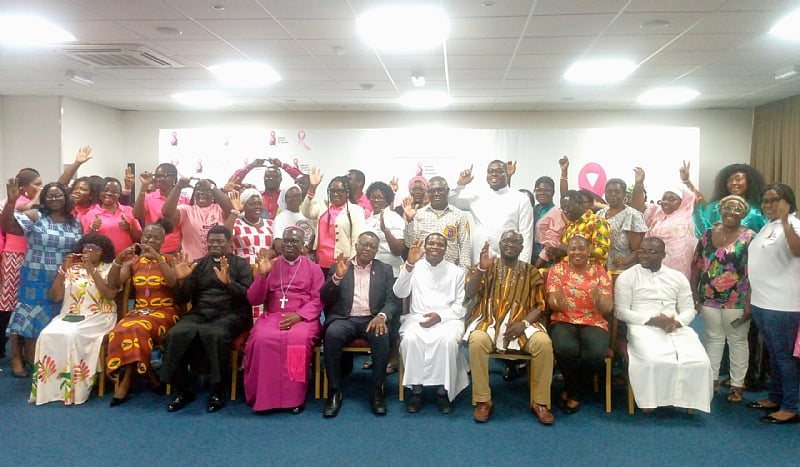The Breast Society of Ghana (BSG) has recently highlighted the detrimental effects of stigma on breast cancer patients, asserting that a significant number of deaths attributed to the disease result from this societal prejudice rather than the cancer itself. During the Pinktober 2024 event, which is dedicated to raising awareness of breast cancer during the month of October, Dr. Hannah Ayettey Anie, the President of BSG, underscored a sobering reality: many individuals who manage to recover from breast cancer continue to struggle with their health and wellbeing due to a lack of support from their family, friends, and broader communities. This stigma presents a major hurdle, complicating the treatment journey for patients and hindering their ability to thrive post-recovery. The theme for Pinktober 2024, “Enough of the Stigmatisation,” calls for a collective acknowledgment of this issue and a shift toward more compassionate societal attitudes.
Despite significant global and local efforts to combat breast cancer, Dr. Anie pointed out a troubling trend—the incidence of the disease continues to rise. While educating patients on the importance of seeking treatment is crucial, Dr. Anie stressed the equally important role that society must play in fostering acceptance and comprehensive support for those affected by breast cancer. Only by dismantling the stigma surrounding the disease can patients engage fully in their healing processes, ultimately improving their chances of leading longer, healthier lives. She urged stakeholders across all sectors to come together to change the narrative surrounding breast cancer and its survivors, which is often fuelled by misunderstanding and fear.
Echoing Dr. Anie’s sentiments, Ms. Gina Kumah-Dzagah, the Executive Secretary of BSG and a breast cancer survivor herself, addressed the profound psychological impact of stigma on patients. She noted that many individuals internalize societal prejudices related to breast cancer, leading them to engage in self-isolation, which can exacerbate feelings of emotional distress and depression. This isolation not only affects their mental health but can also delay crucial diagnoses and treatments, ultimately contributing to higher mortality rates among cancer patients. Ms. Kumah-Dzagah passionately appealed to families, friends, and communities to provide essential support, emphasizing that a robust support system could significantly alleviate the burdens faced by those battling cancer.
The call for solidarity and societal support extended to the ceremony’s presiding figure, Right Reverend Michael Bossman, the Administrative Bishop of the Methodist Church. He echoed the overarching theme of the event by advocating for an end to stigma. His remarks underscored the importance of community involvement, stating that collective efforts to support breast cancer patients could lead to early detection and treatment—factors crucial for improving health outcomes. By promoting understanding and compassion, Reverend Bossman emphasized that individuals diagnosed with breast cancer could experience significant improvements in their quality of life, ultimately extending their longevity.
In the fight against breast cancer, the BSG envisions a future where acceptance is paramount and patients are not burdened by the weight of stigma. This vision necessitates concerted action at all levels of society—including educational initiatives, support networks, and public awareness campaigns aimed at demystifying breast cancer and paving the way for healing and acceptance. The organization emphasizes that healthcare providers, community leaders, and policymakers must collaborate to create a more supportive environment, facilitating not only medical treatments but also emotional and social support systems that nurture patient resilience.
As Pinktober 2024 unfolds, the Breast Society of Ghana aims to shift the narrative around breast cancer from one of silence and shame to one of understanding and support. By amplifying the voices of survivors and advocates, they strive to inspire change in public perceptions, ultimately reducing stigma and enabling those affected by breast cancer to live more fulfilled lives. The overarching message is clear: society must take responsibility for the wellbeing of its members and work collectively to dismantle the structures that perpetuate stigma, ensuring that every individual facing breast cancer is met with compassion, support, and dignity.


